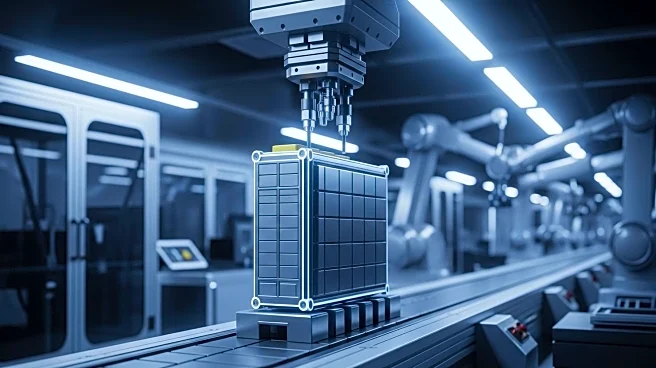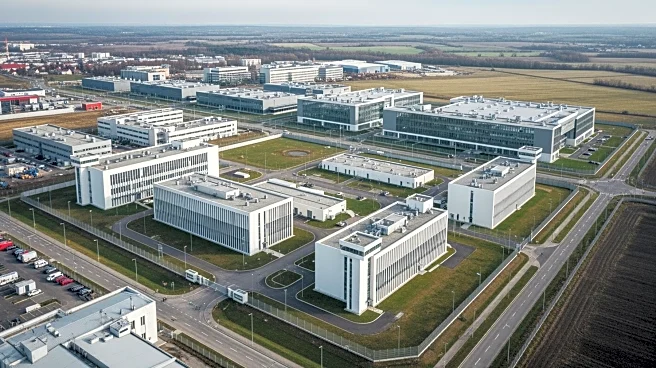What's Happening?
Hyundai CEO Jose Munoz announced that the construction of its Georgia battery plant will be delayed by up to three months following an immigration raid. The raid led to the detention of approximately 475 workers, primarily South Korean nationals, creating a labor shortage at the plant. The facility, operated in partnership with LG Energy Solutions, was initially scheduled to begin operations later this year. Munoz stated that Hyundai will need to find ways to fill the vacant positions, as many of the detained workers are not based in the U.S. The delay poses challenges for Hyundai's production timelines and its ability to meet market demand for electric vehicles.
Why It's Important?
The delay in the Georgia battery plant's construction is a setback for Hyundai's expansion plans in the U.S. electric vehicle market. The raid and subsequent detentions highlight the complexities of immigration compliance for international companies operating in the U.S. The situation may affect Hyundai's production schedules and its ability to compete in the growing EV market. Additionally, the incident may influence future foreign investments in the U.S., as companies reassess the risks associated with labor and immigration enforcement.
What's Next?
Hyundai will need to address the labor shortage caused by the raid and find solutions to fill the vacant positions. The company may face difficulties in sourcing skilled workers domestically, which could prolong the delay. The situation may also lead to diplomatic discussions between the U.S. and South Korea regarding immigration policies and their impact on business operations. Hyundai's interim reliance on other battery plants may affect its production capacity and supply chain management.









